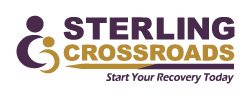Prescription drug addiction can quietly infiltrate a household, creating emotional turmoil and confusion for families who are unsure how to respond. For residents of Mount Sterling, KY, and the surrounding areas, knowing how to recognize the signs and take action can make all the difference in helping a loved one recover. If your spouse is addicted to prescription drugs, you’re not alone.
Sterling Crossroads offers prescription drug abuse treatment in KY to Mount Sterling families and the surrounding communities. Contact our compassionate team of addiction treatment specialists today and learn about treatment options for your spouse or loved one.
Recognizing the warning signs of prescription drug addiction
Prescription drug misuse doesn’t always look the same, but certain warning signs often appear when someone is struggling. If you suspect your spouse may be addicted to opioids, benzodiazepines, stimulants, or other medications, start by paying attention to the following indicators:
- Physical symptoms: Drowsiness, slurred speech, dilated or constricted pupils, frequent nausea, or changes in appetite and sleep patterns.
- Personality shifts: Increased irritability, mood swings, withdrawal from family activities, or uncharacteristic anxiety or paranoia.
- Secretive behavior: Hiding pill bottles, frequent excuses for doctor visits, unexplained absences, or defensive reactions when questioned.
- Financial strain: Unusual spending, missing money, or sudden financial difficulties that don’t align with known expenses.
If you recognize several of these warning signs, it may be time to consider whether your spouse is addicted to prescription drugs and requires professional help.
The impact on your relationship and family stability
Addiction doesn’t just affect the person using substances—it touches every member of the family and, by extension, the larger community. As the addiction deepens, it often erodes trust and communication. You may feel emotionally disconnected from your spouse or find conversations marked by tension, defensiveness, or avoidance.
Over time, the following challenges may emerge:
- Emotional distance and feelings of isolation within the relationship
- Increased conflict over finances, parenting responsibilities, or household duties
- A sense of instability and unpredictability that can affect children and other family members
In many cases, families describe feeling like they are “walking on eggshells,” trying to maintain peace while hoping the issue resolves on its own. Unfortunately, addiction rarely improves without intervention.
When concern turns into the need for intervention
Knowing when to move from quiet concern to taking definitive action can be difficult. But here are some signs that it’s time to address the issue head-on:
- Your spouse’s behavior is interfering with their ability to work, parent, or maintain basic responsibilities.
- You’ve noticed increased health problems or dangerous behavior, such as driving under the influence.
- You’ve tried expressing your concern, but the conversation is met with denial or hostility.
- You’re constantly feeling anxious, exhausted, or unsafe in your own home.
These are all signs that the problem has escalated, and professional guidance is not just helpful—it’s essential.
How to begin the conversation with a spouse addicted to prescription drugs
Bringing up your concerns about addiction can be incredibly difficult, especially if your spouse is defensive or unaware of the severity of their problem. Here are some tips for approaching the conversation with care and clarity:
- Choose the right time: Talk when your spouse is sober, and the environment is calm.
- Express concern, not judgment: Use “I” statements, such as “I’ve noticed you seem really tired lately, and I’m worried about you.”
- Be specific: Share concrete examples of behaviors or incidents that have concerned you.
It’s also important to stay calm and avoid turning the conversation into an argument. The goal is to open the door to further discussion and plant awareness that something needs to change.
Seeking professional help from Sterling Crossroads
Once you’ve opened the conversation, the next step is to encourage your spouse to seek help. Sterling Crossroads, located in Mount Sterling, offers personalized, outpatient addiction treatment services designed to meet individuals where they are.
Our approach is centered around dignity, confidentiality, and compassionate care. With services such as medication-assisted treatment (MAT), counseling, and support for families, we help people regain control of their lives in a safe and structured environment. Early intervention can make a critical difference in the success of recovery.
Here’s how Sterling Crossroads can support you and your spouse:
- Individual and group counseling tailored to prescription drug addiction
- Support and education for families navigating addiction at home
- Flexible treatment options that allow for work and family responsibilities
Sterling Crossroads believes strongly in community and knows that communities are formed of individuals and their families. At Sterling Crossroads, we’re here for your family!
Contact Sterling Crossroads
Supporting a spouse through addiction is one of the most challenging experiences a person can face. But you don’t have to carry the weight by yourself. With the right support system, including professionals who understand the unique struggles of prescription drug addiction, healing is possible.
Sterling Crossroads is committed to helping families in Mount Sterling and the surrounding communities rebuild their lives with hope, integrity, and evidence-based care. Whether you’re just beginning to notice the signs or you’re ready to take the first step toward intervention, we’re here to help.
Contact Sterling Crossroads online or call 859.274.4422. Your spouse deserves a chance at recovery, and your family deserves peace. Let us walk with you on the path to healing.





